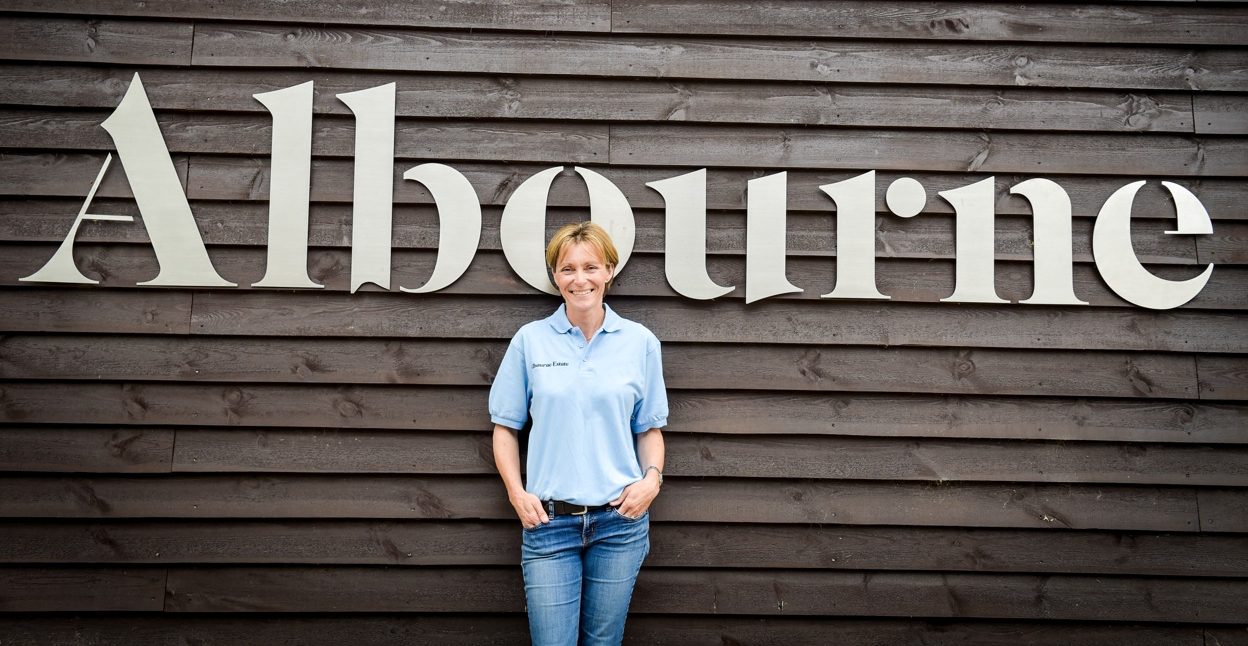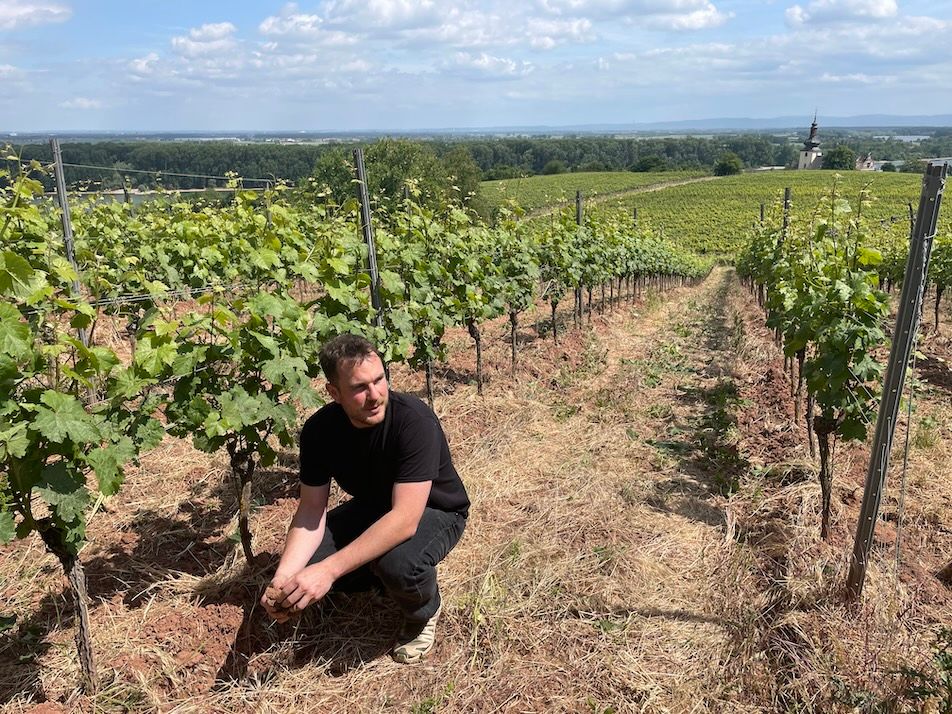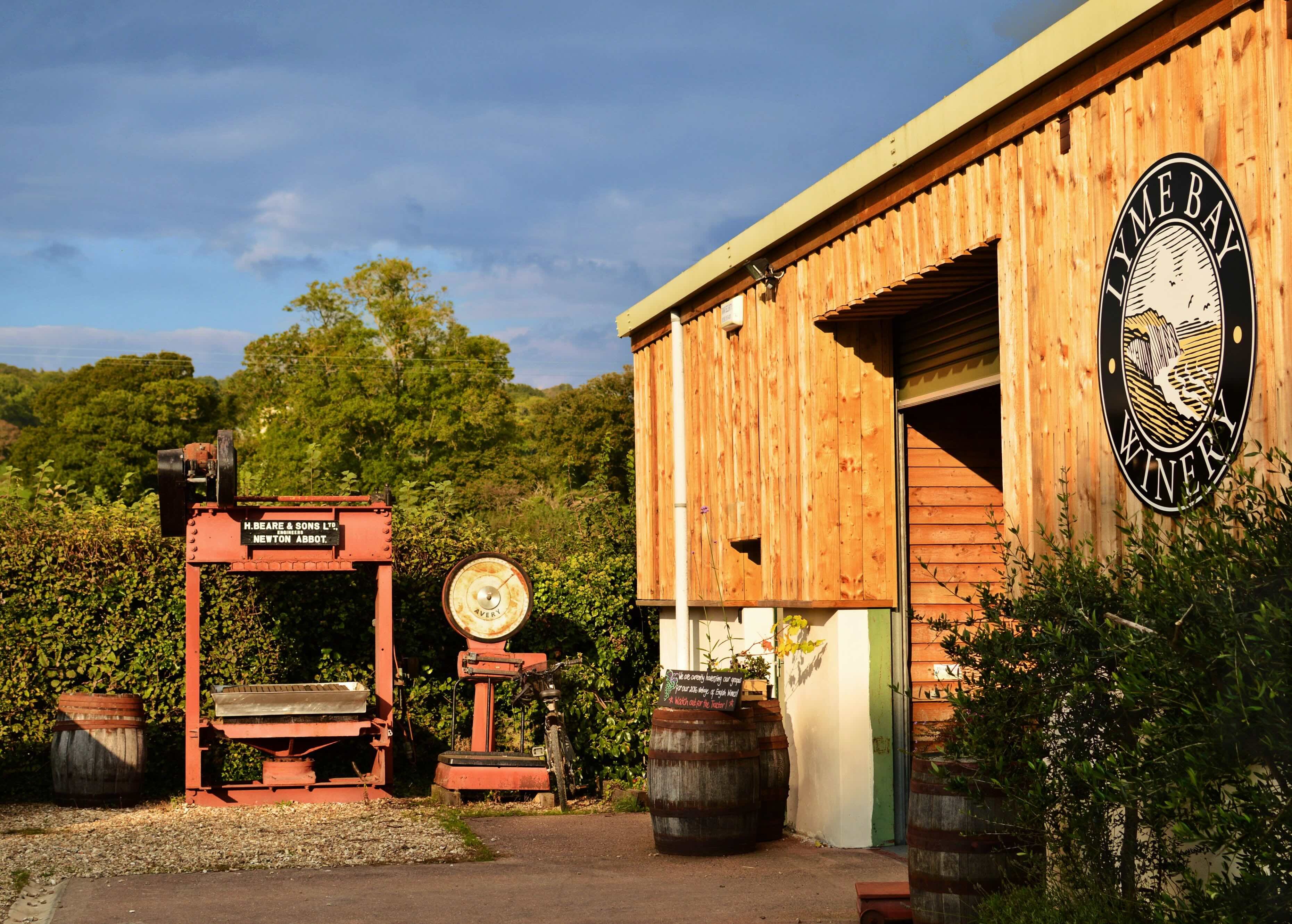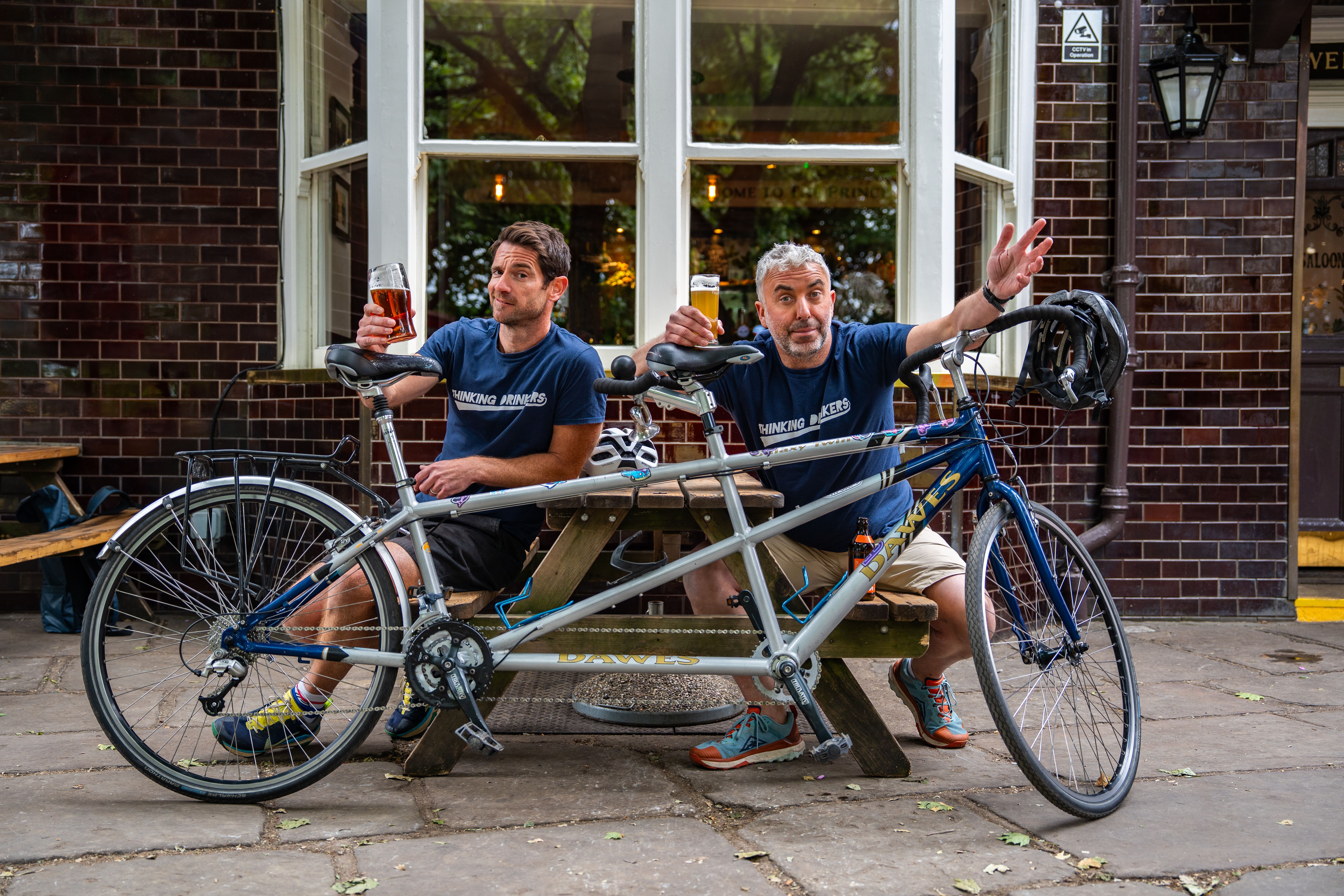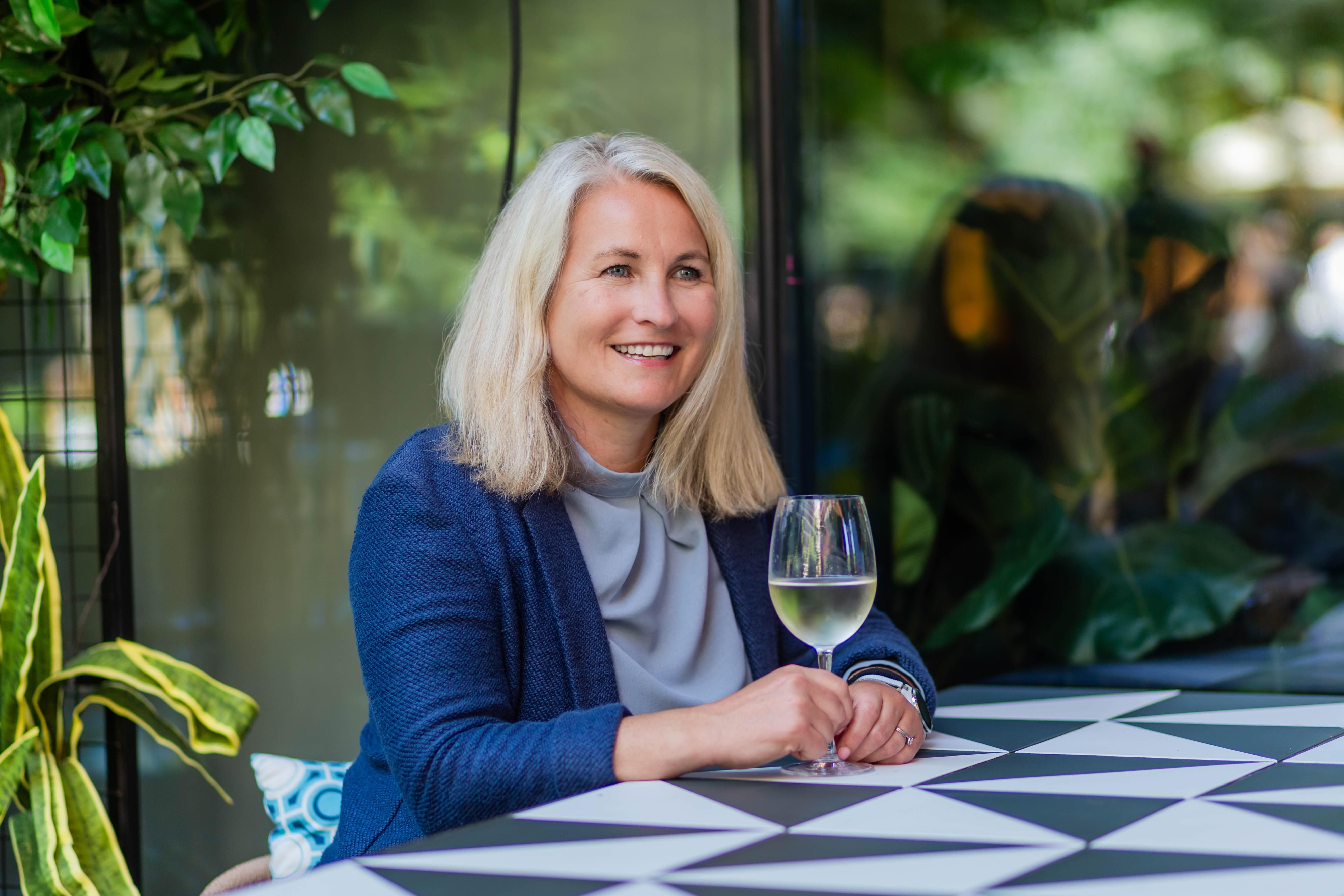Look close enough and there are stories emerging about new English wine producers, both big and small, making their mark on this fast growing part of the wine trade. Alison Nightingale hopes to beat the drum not just for English wine, but vermouths too from her Albourne Estate in Sussex.
First of all tell us about the Albourne winery and the vineyard. Why did you go into wine and how long have you been doing it?
I became interested in producing wine when visiting Australian and New Zealand vineyards, while I was working in Singapore.
I’d returned to the UK when pregnant with my second child, wanting a rewarding career which would fit around my family, so I completed a four-year, part-time vine growing and wine making degree at Plumpton College in East Sussex.
Then I started looking for a vineyard. It took several years. It’s hard to find existing vineyards to buy in the UK and we wanted one near our home in Hurstpierpoint.
To be commercially viable we wanted to plant 30 acres and the site needed to have barns for the winery, tasting room, lab and storage, as well as being a suitable home for our three daughters. When a 120-acre arable farm, overlooked by the South Downs, eight miles from Brighton, came on the market, we jumped at it and renamed it Albourne Estate.
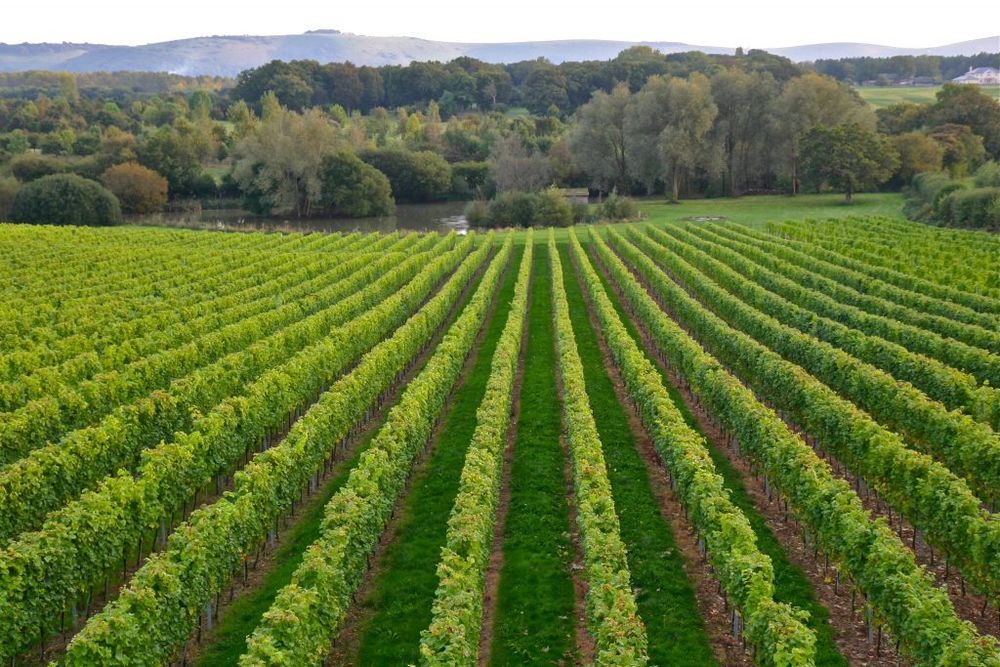
The Albourne vineyard was devised and planted with the help of Stephen Skelton
When did you start planting vines?
We started to plough in September 2009 before the sale had gone through. And working with viticulture expert Stephen Skelton, we planted 40,000 vines with vine varieties and root stocks from France and Germany for still and sparkling wines.
Our first harvest was 2013 and we started selling the still wines from this vintage in 2014. Our still wine – a Bacchus, a White Pinot Noir and a Pinot Gris-based Estate Selection – has proved very popular and sells out every year.
Last year we launched our first sparkling, our Blanc de Blancs. We follow the traditional method of secondary fermentation in bottle and extended on-lees ageing in order to develop wines of depth, finesse and complexity.
All our bottling is done in our own winery – a converted grain store and cattle shed with a solar-panel roof.
We are focused on being a boutique single estate wine producer – using only our own grapes and ensuring we exploit fully the unique ‘terroir’ of our Sussex vineyard.
What grapes do you grow and what is the size of your production?
We grow seven grape varieties planted across multiple clones and root stocks. For our sparkling wine we use the classic ‘champagne’ varieties of Chardonnay, Pinot Noir and Pinot Meunier. We use Pinot Gris, Pinot Blanc, Pinot Noir, Bacchus and Ortega for our still wines.
Yields and production numbers vary considerably each year and, to help with cash flow, we have over the past few years sold a proportion of our crop to other leading English producers.
We aim to grow production from an annual 25,000 bottles to over 50,000 per year by 2021.
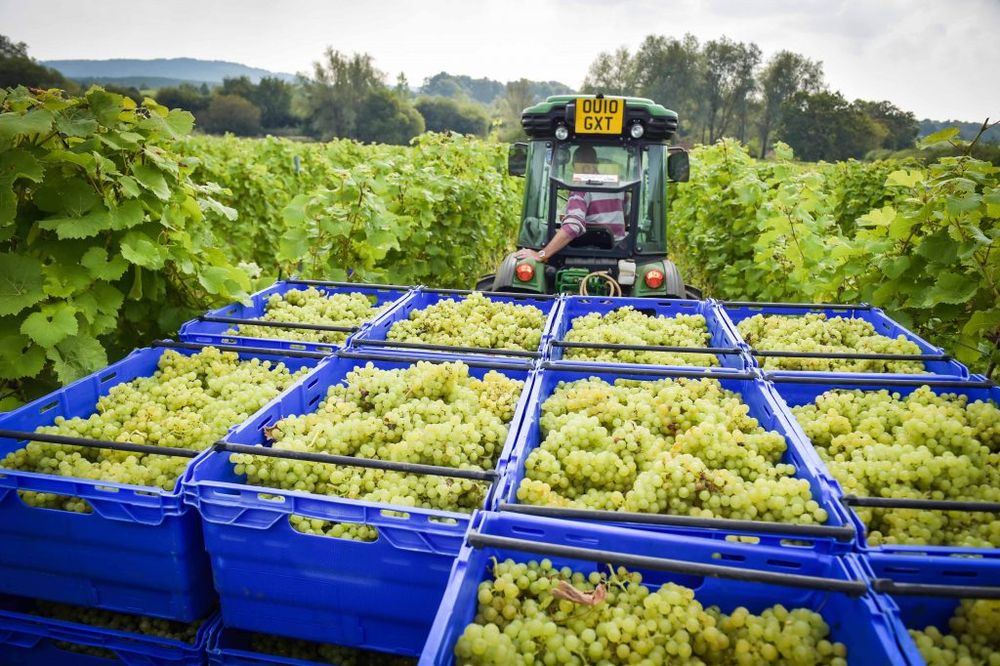
Harvest time at Albourne Estate
Who do you sell to?
Most of our business is through local distributors, independent retailers and on-trade such as Ockenden Manor.
We have also been listed by The Wine Society and by prestigious London restaurants such as the Aqua Shard and in Scotland through our national trade distributor, Alliance Wines.
We also sell direct to the public via our website and cellar door during tours and special openings.
Have you won awards along the way?
Over the years we have won many from Decanter to IWC to IWSC bronzes, silvers and golds. The highlight was probably winning UK Wine of the Year in 2015 with our second only vintage of Bacchus (the 2014).
It’s a rarity for a still wine to steal the show at the UK wine awards and I think in part our wine contributed to the considerable growth in plantings of Bacchus we are now seeing in the UK.
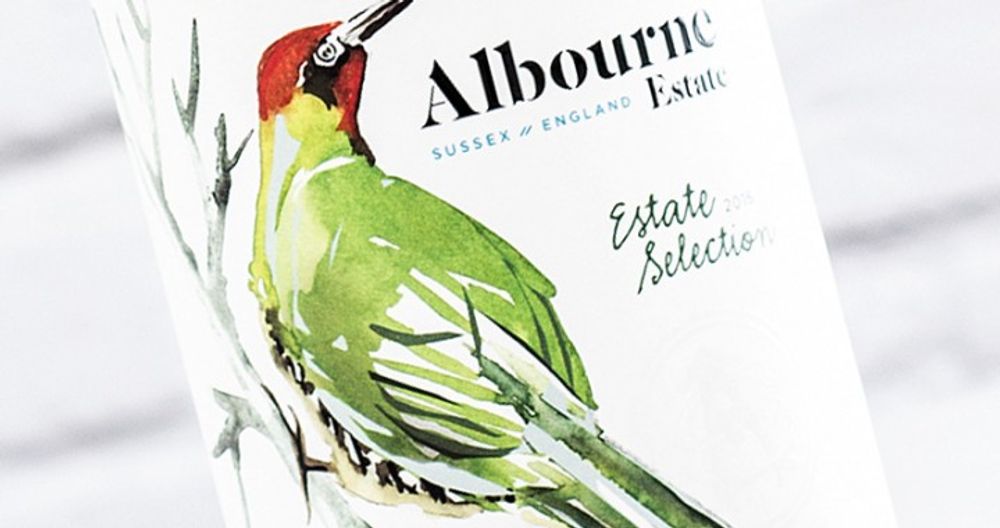
Why are you making vermouth?
Firstly, it’s a delicious drink and we believe there is a real opportunity for interest in a local product. Recently, most of the new launch focus from small drink producers has been on various gins. However, vermouth makes much more sense for us as a wine producer as it is a wine-based product and fits well within our range.
What is the process and how easy is it to make?
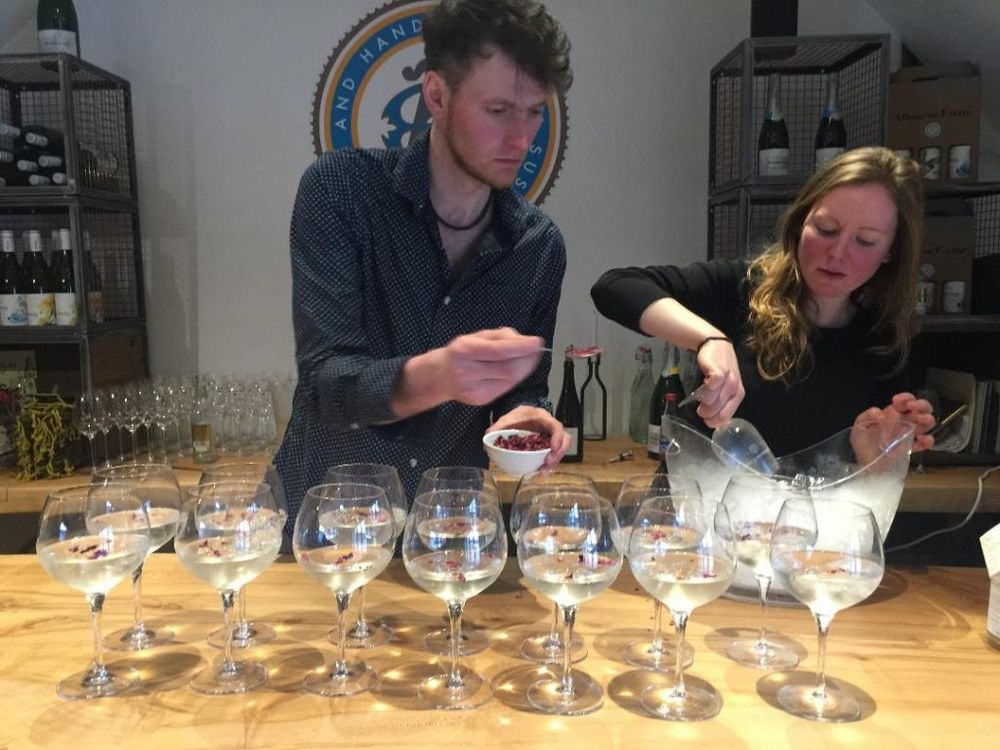
Getting ready to launch the Albourne vermouth at a special event last month
The full details are strictly secret! We utilise matured base wines blended with a botanical extract which is created from a selection of 40 herbs, spices and citrus peels and sugar. This is then fortified to 18% ABV using spirit prior to bottling. The art is in selecting the botanical blend and preparing the extract which takes time, knowledge and experience.
Where do you see the opportunity for English vermouth?
I think it’s huge. In England most of us do not understand vermouth or are unaware of its flexibility as an aperitif, a dessert wine, or in a diverse range of cocktails. We try to explain how and when to drink it, with food pairing suggestions. For example, it is lovely on its own, served with strong cheeses like Gorgonzola, or strong Cheddar, or nuts, salami or prosciutto. Our ambition is to change the way the English think about vermouth.
What type of vermouth are you making and what is the price and distribution model?
Our 40 vermouth – named after the 40 botanicals it is infused with – is a white, semi-dry vermouth, characterised by its smoothness, complexity and distinct freshness. The array of herbal, exotic spice and citrus notes is beautifully balanced.
RRP is £20 for a 70cl bottle.
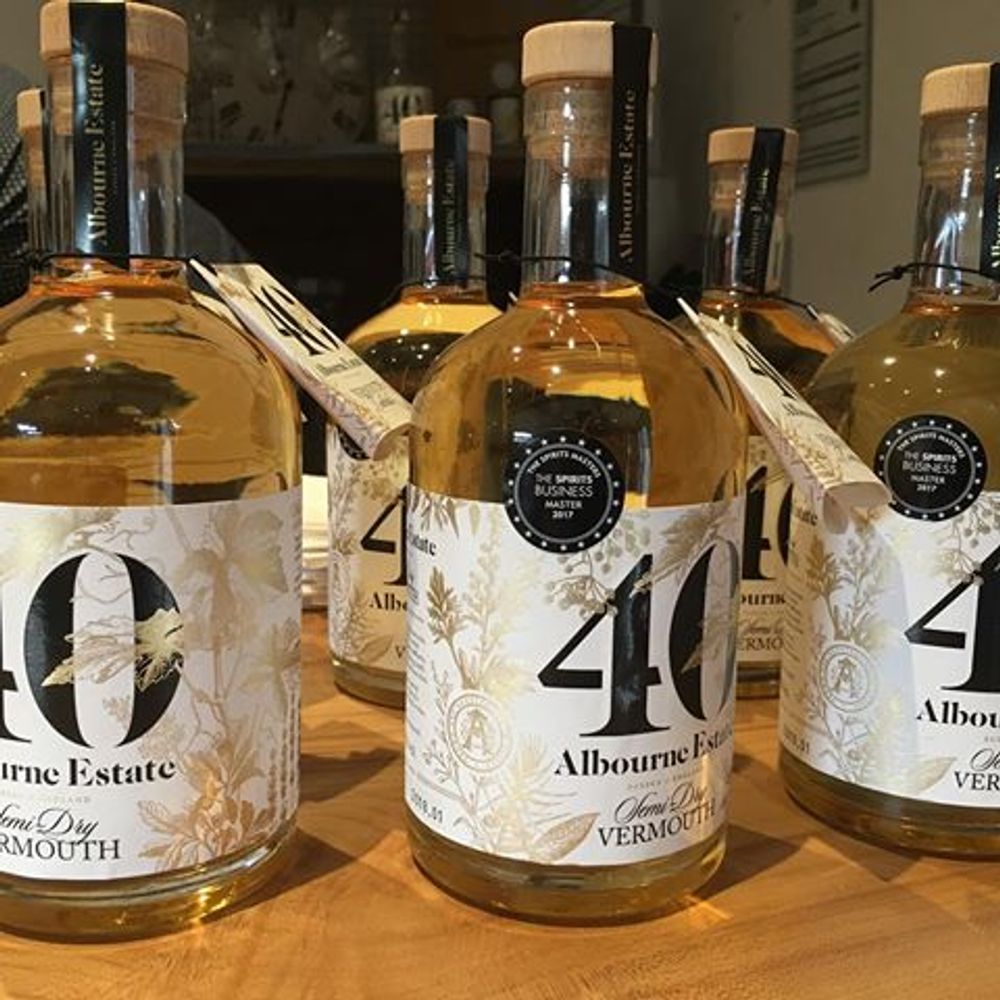
What are your ambitions?
We aim for continuous improvement and innovation. The launch of our vermouth is part of this process as it allows us to select the optimum wines for sparkling wine making, reserving other cuts for still wines and vermouth that are better suited to these styles of wines.
What are the pros and cons of working in English wine?
The downside is continuous stress due to the variability and unpredictability of our climate and higher production costs as a result of Brexit. The upside is the interest and excitement of working in a new and growing industry and the feeling there is so much more we can do.
What are the biggest challenges in the market?
Interest in English wines continues unabated. However, without a doubt the competition in the area of sparkling wine is now pretty intense. It is much harder to sell a £30 bottle of English sparkling than a £15 bottle of English still wine, purely by virtue of price, size of market sector and competitive activity.
● Visit www.albourneestate.co.uk
